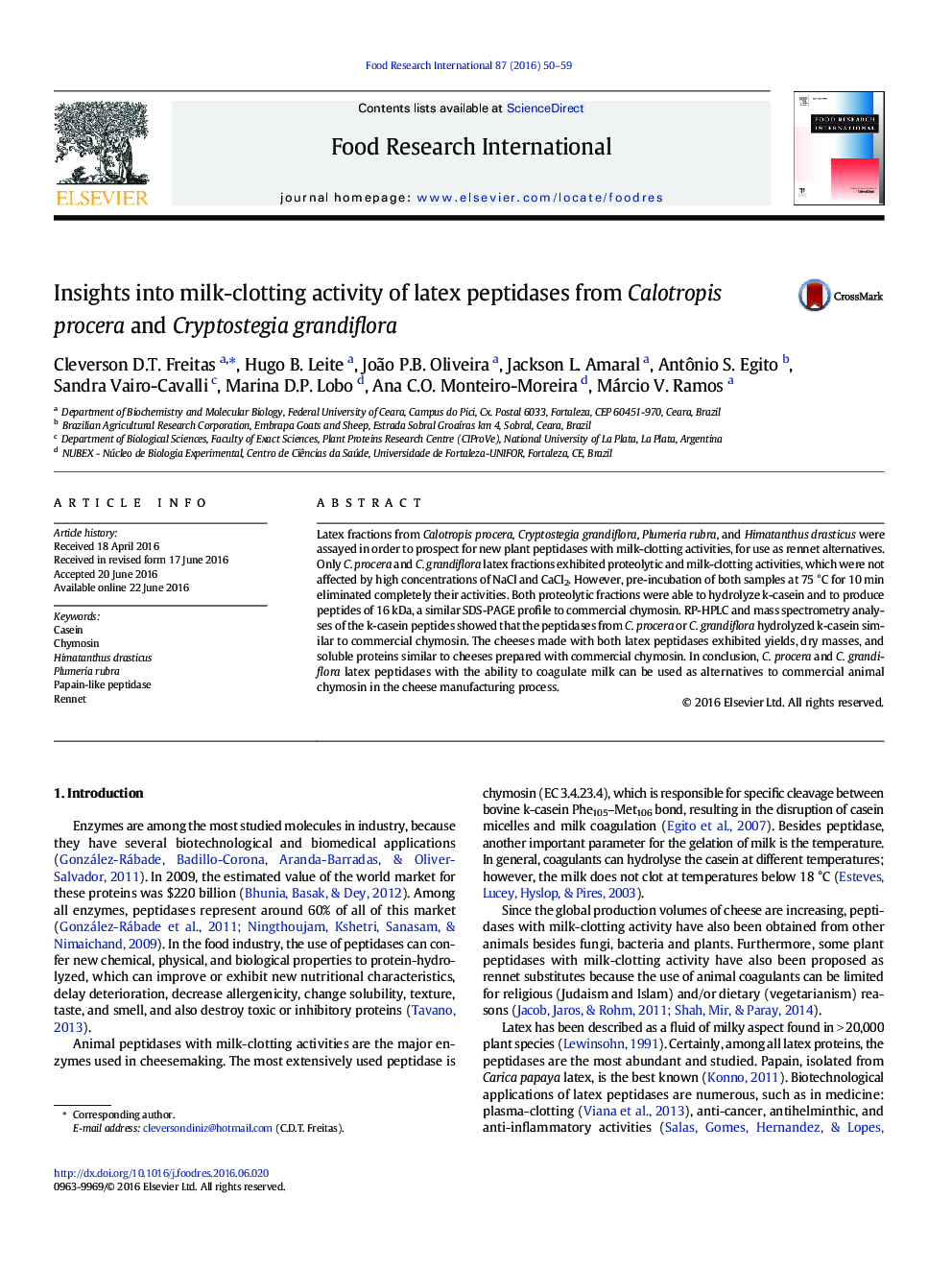| کد مقاله | کد نشریه | سال انتشار | مقاله انگلیسی | نسخه تمام متن |
|---|---|---|---|---|
| 4561199 | 1628461 | 2016 | 10 صفحه PDF | دانلود رایگان |

• The milk-clotting activity of cysteine peptidases from four latex species is reported about.
• Only C. procera and C. grandiflora latex peptidases exhibited milk-clotting activities.
• The cheeses made with the peptidases were similar to cheeses prepared with chymosin.
Latex fractions from Calotropis procera, Cryptostegia grandiflora, Plumeria rubra, and Himatanthus drasticus were assayed in order to prospect for new plant peptidases with milk-clotting activities, for use as rennet alternatives. Only C. procera and C. grandiflora latex fractions exhibited proteolytic and milk-clotting activities, which were not affected by high concentrations of NaCl and CaCl2. However, pre-incubation of both samples at 75 °C for 10 min eliminated completely their activities. Both proteolytic fractions were able to hydrolyze k-casein and to produce peptides of 16 kDa, a similar SDS-PAGE profile to commercial chymosin. RP-HPLC and mass spectrometry analyses of the k-casein peptides showed that the peptidases from C. procera or C. grandiflora hydrolyzed k-casein similar to commercial chymosin. The cheeses made with both latex peptidases exhibited yields, dry masses, and soluble proteins similar to cheeses prepared with commercial chymosin. In conclusion, C. procera and C. grandiflora latex peptidases with the ability to coagulate milk can be used as alternatives to commercial animal chymosin in the cheese manufacturing process.
Figure optionsDownload as PowerPoint slide
Journal: Food Research International - Volume 87, September 2016, Pages 50–59